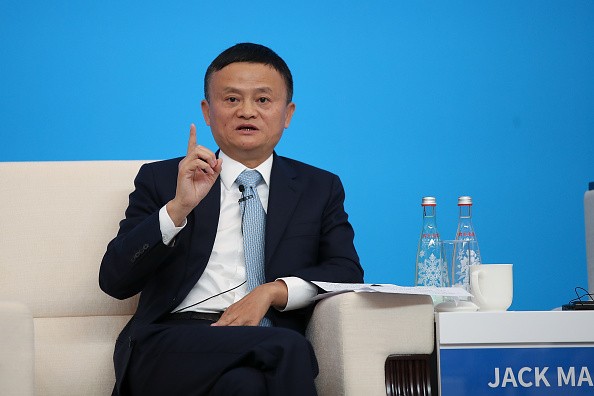
Jack Ma, after being out of the public eye for months, the Chinese billionaire and once the richest man in the world, has resurfaced.
But his real problems could be just starting, and those of his business empire.
READ : Stimulus Bill Includes $25 Billion in Rental Assistance. Are You Qualified? Here's How to Apply
Jack Ma made his first public appearance on Wednesday in almost three months, speaking at an online philanthropic event with a group of rural teachers. Since his last public appearance in October, when he gave a speech that irritated regulators, speculation about his whereabouts has been widespread.
Since then, the record initial public offerings of the fintech company Ant Group, which Jack Ma controls, have both been withdrawn at the last minute. An investigation into the commercial practices of e-commerce giant Alibaba, another firm in Jack Ma's empire, was launched last month by China's antitrust regulator.
The mysterious absence of Ma, which made international headlines, sparked speculation as to whether he could face the same fate as some missing Chinese tycoons who later reappeared in custody to face prosecution and time in jail. In recent months, the regulatory scrutiny and Ma's unknown whereabouts worried investors and shaved billions of dollars off the market cap of Alibaba.
Investors took Jack Ma's reappearance as an encouraging sign, with Hong Kong-listed shares of Alibaba jumping 8.5 percent on Wednesday. They may have assumed that Jack Ma is back in the good graces of Beijing now, and the regulatory storm will be over. But there seems to be no letup: on the same day that Jack Ma made his public appearance, the central bank of China issued draft rules regulating non-bank payment systems, in which Ant's Alipay is a significant player.
Uncertainties about what some of the draft rules mean are still there. For instance, the authorities say that if two players have more than half of the non-bank payment markets, Alipay and Tencent's WeChat Pay dominate China's mobile and internet payments. The central bank will have discussions with the businesses.
After such warnings, though, it is unclear what the exact implications or remedies would be. The rules also seem to use a broader definition of the market to determine whether a payment company is market-dominating, possibly including some traditional payment channels.
However, the general direction seems clear: the government wants more stringent regulation of fast-growing online financial services, which could add systemic risks to its state-dominated financial system. China's ubiquitous mobile payment systems are likely to be viewed by Beijing as a positive contribution to society. Still, it is more skeptical when firms such as Ant leverage their user base and consumer data to jump into online lending.
The reappearance of Ma at a charity event could be a careful calculation to make the mogul look humble and win points with the government. As his previous high profile and critical remarks are likely to play a role in his landing in hot water in China, where the Party has pushed the private sector to show ever greater loyalty.
In the coming weeks and months, it remains to be seen where else he will appear. However, don't expect him to be in virtual Davos, where China has announced that next week, after bypassing the event in recent years, President Xi Jinping plans to make a speech.








